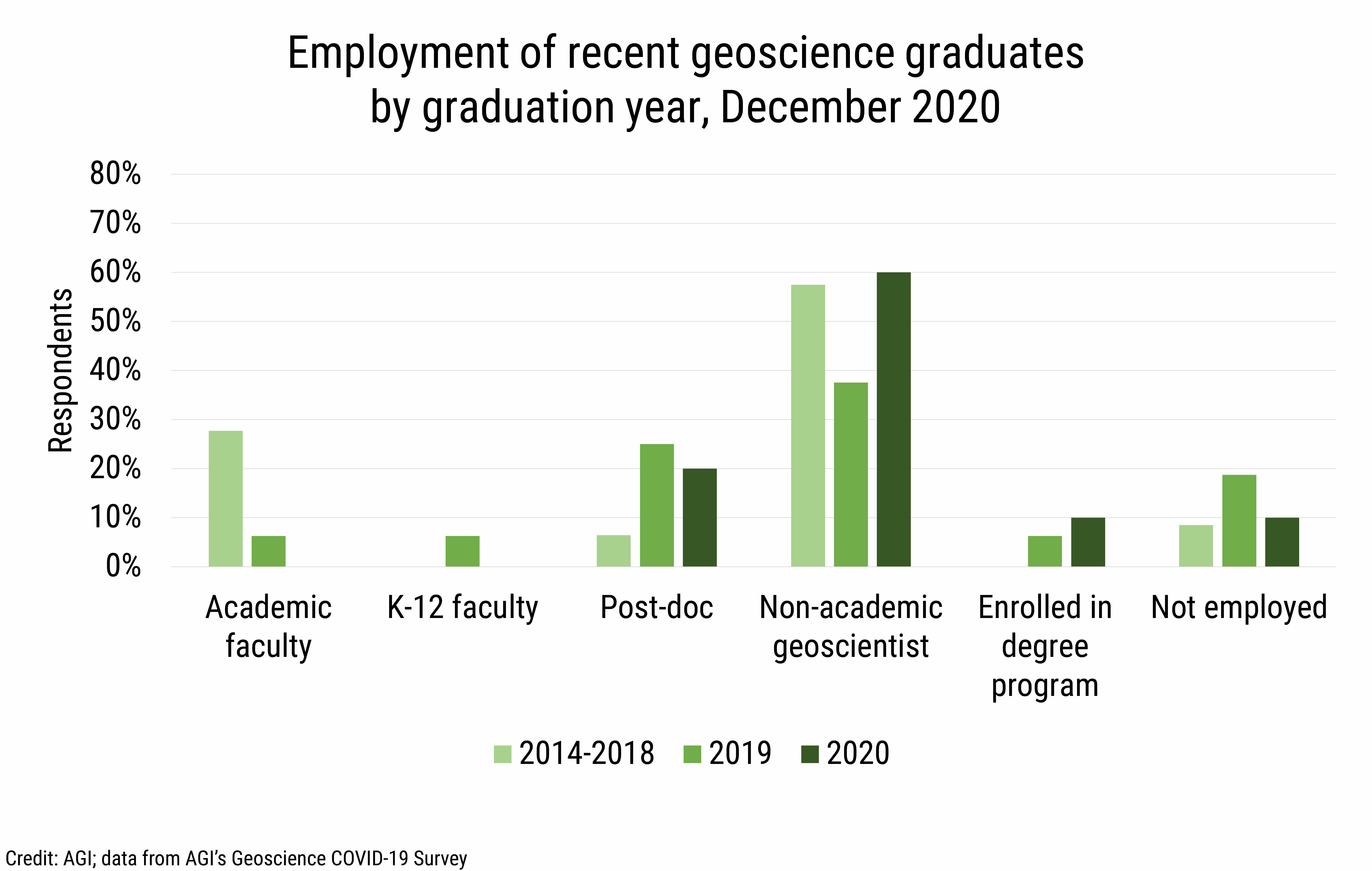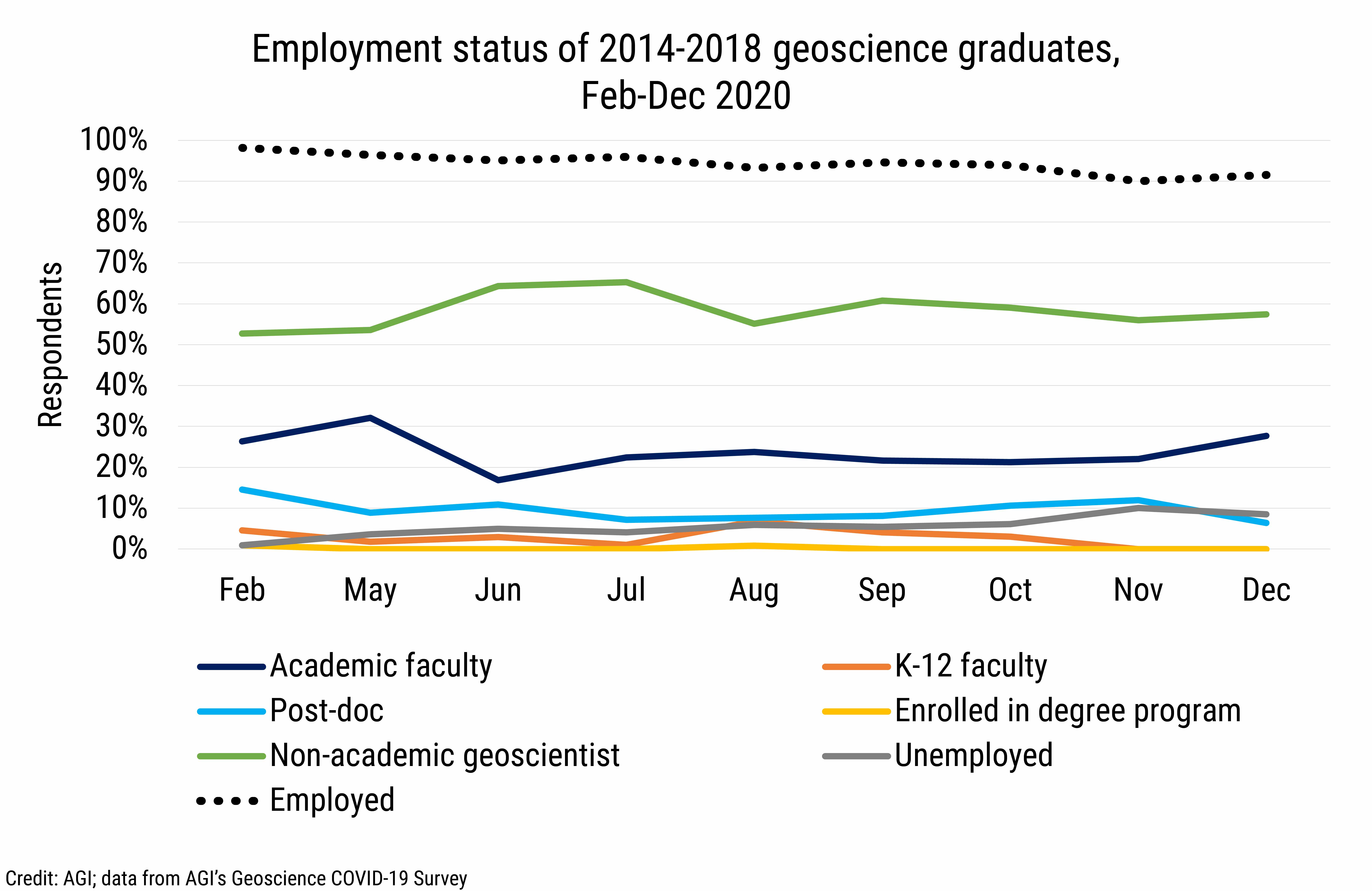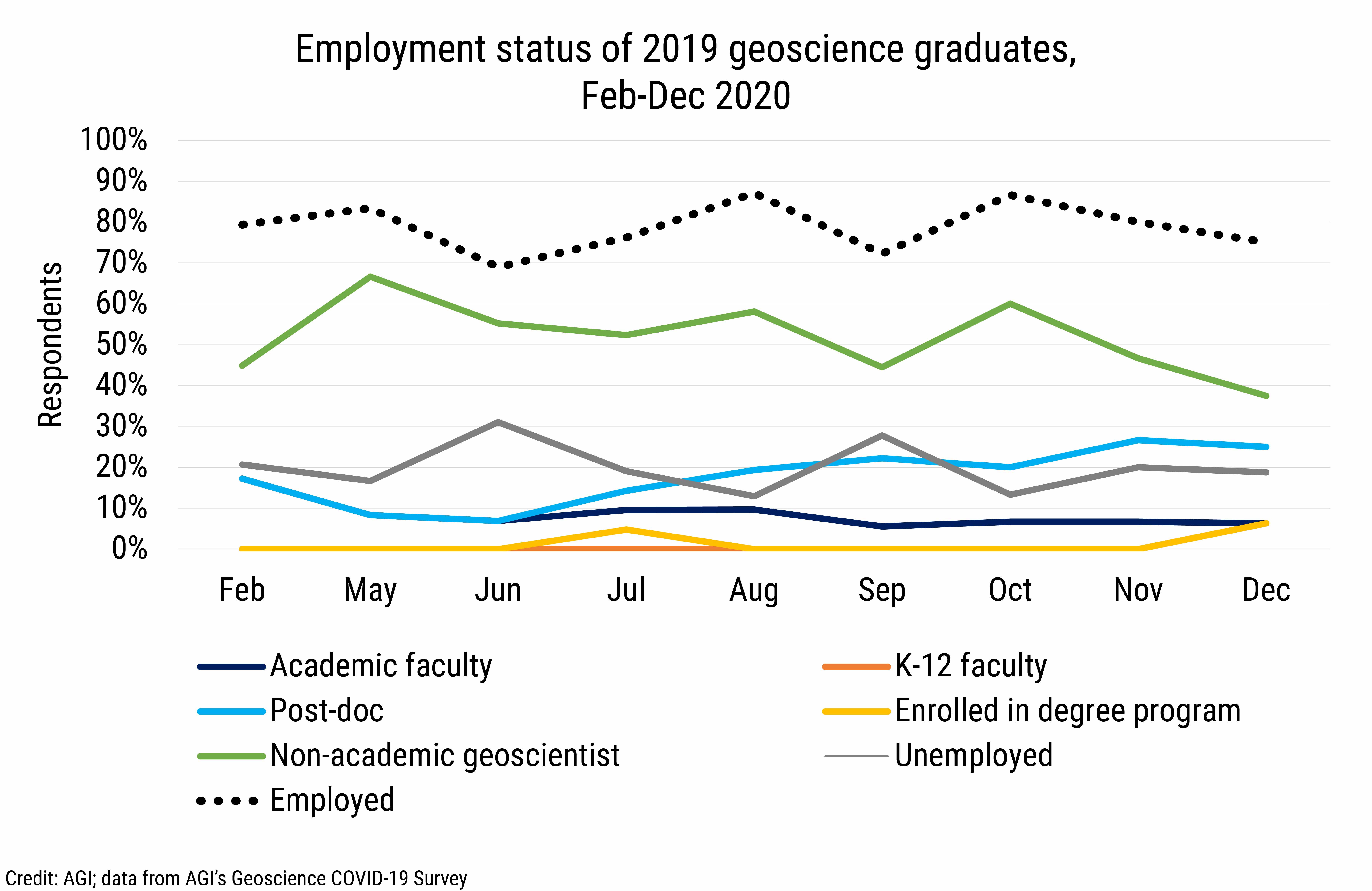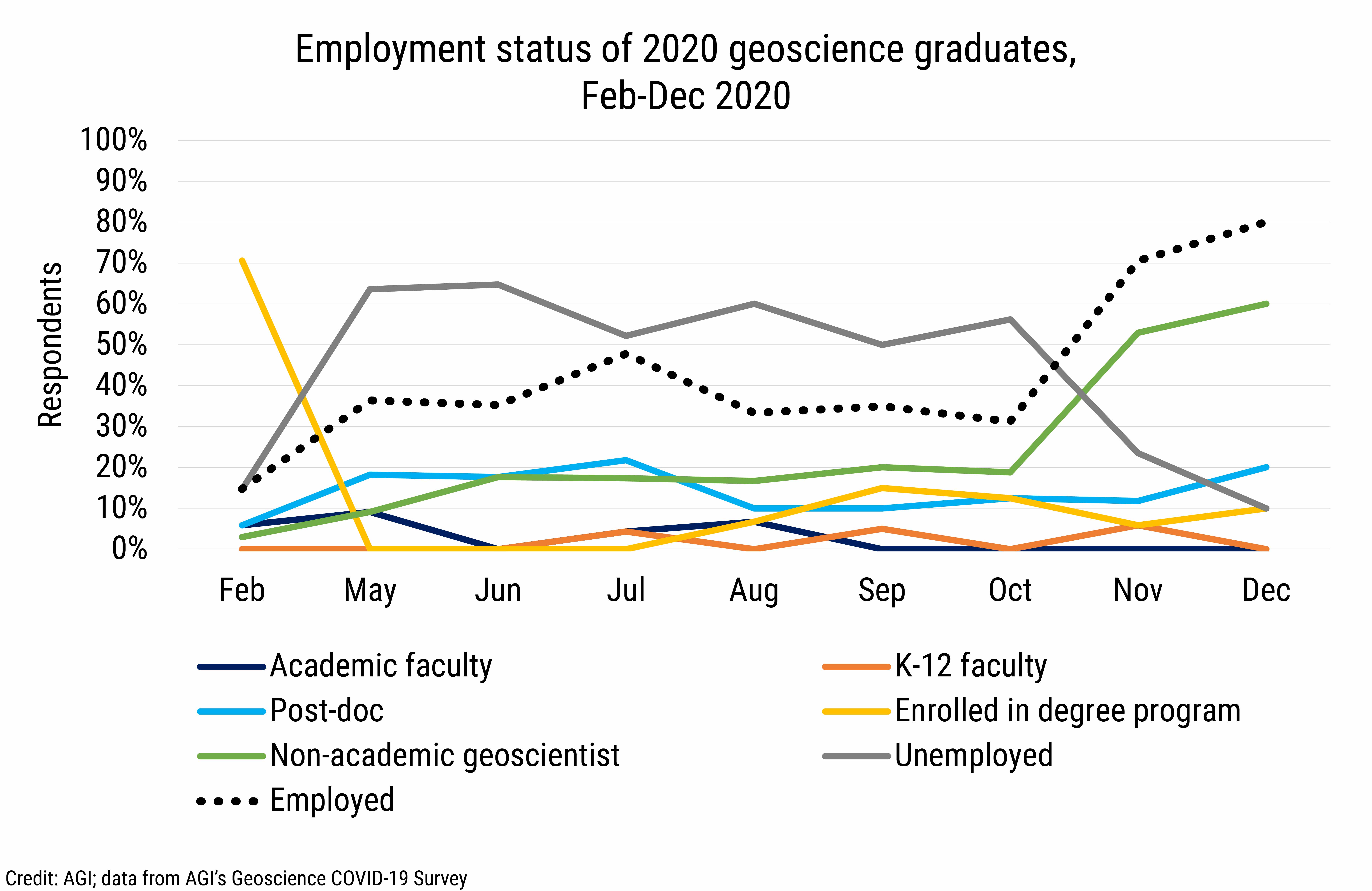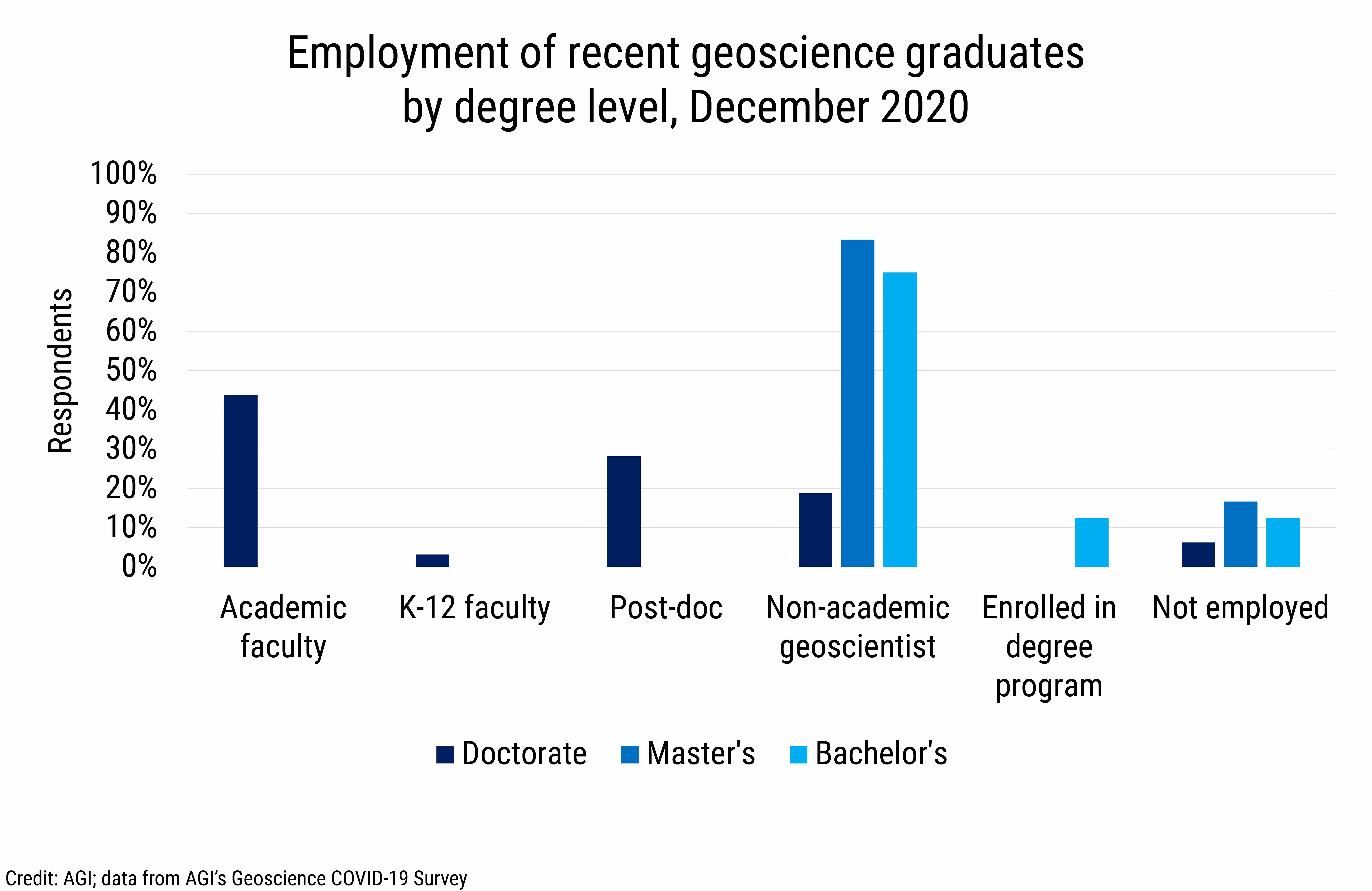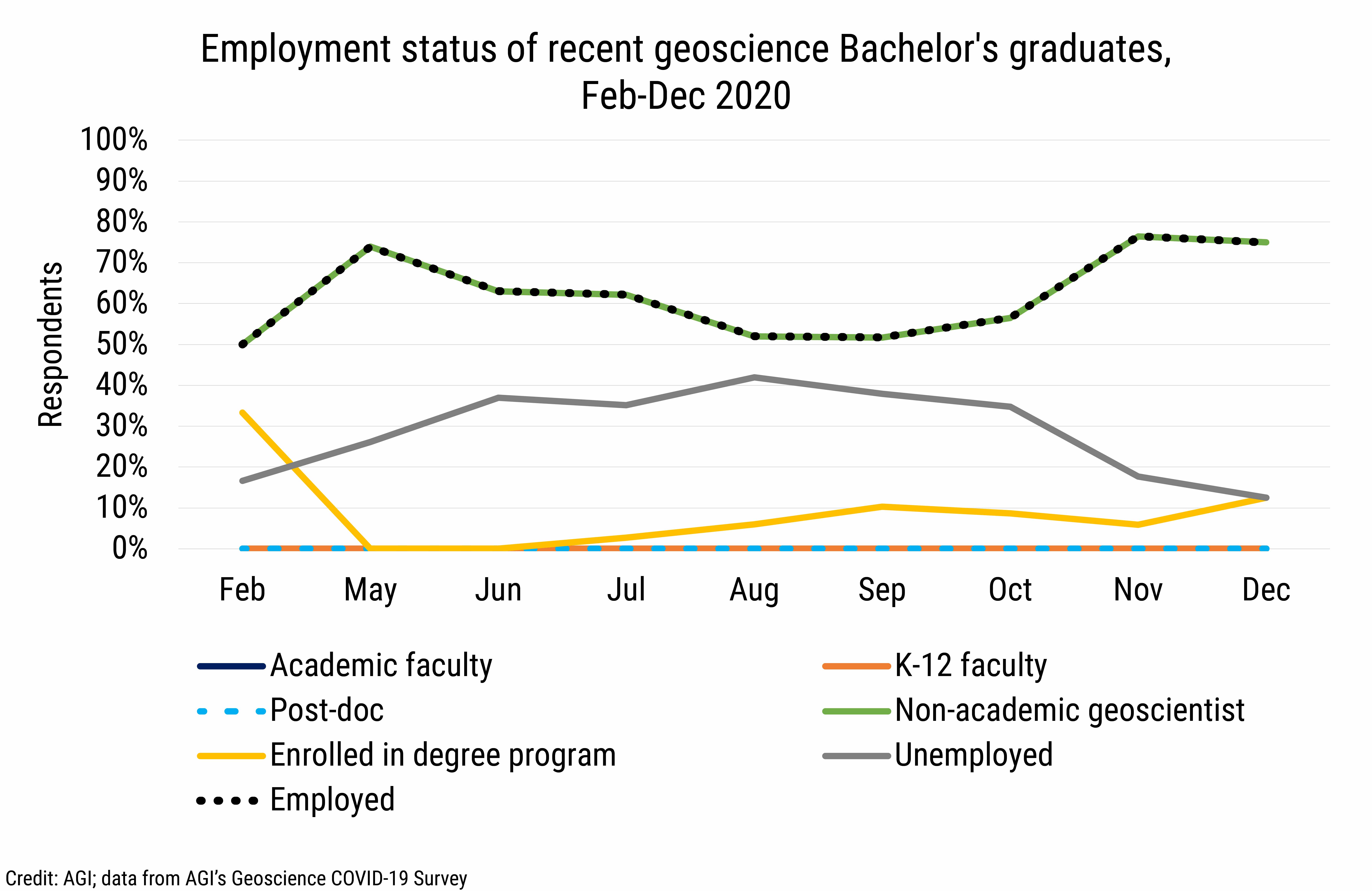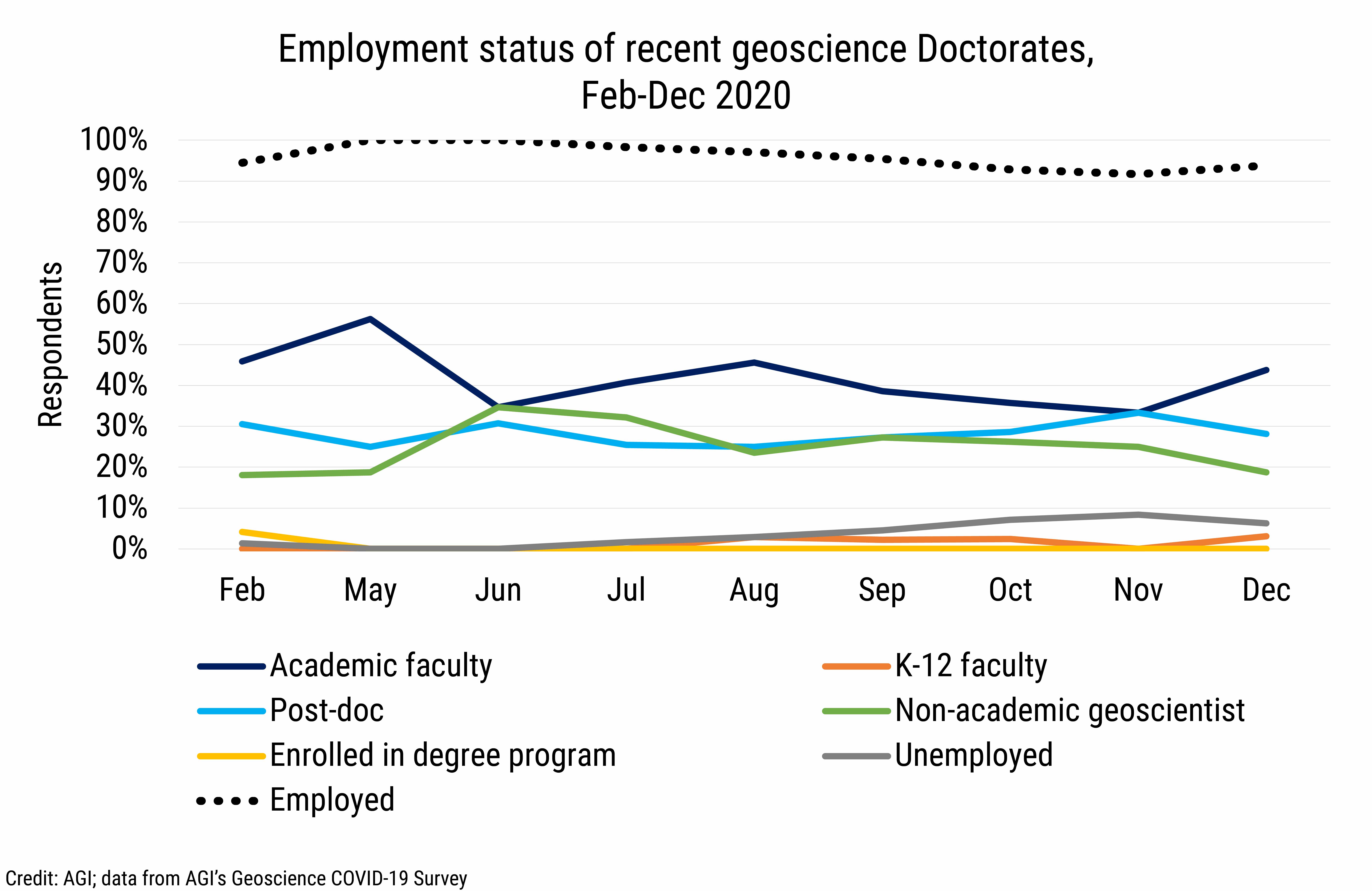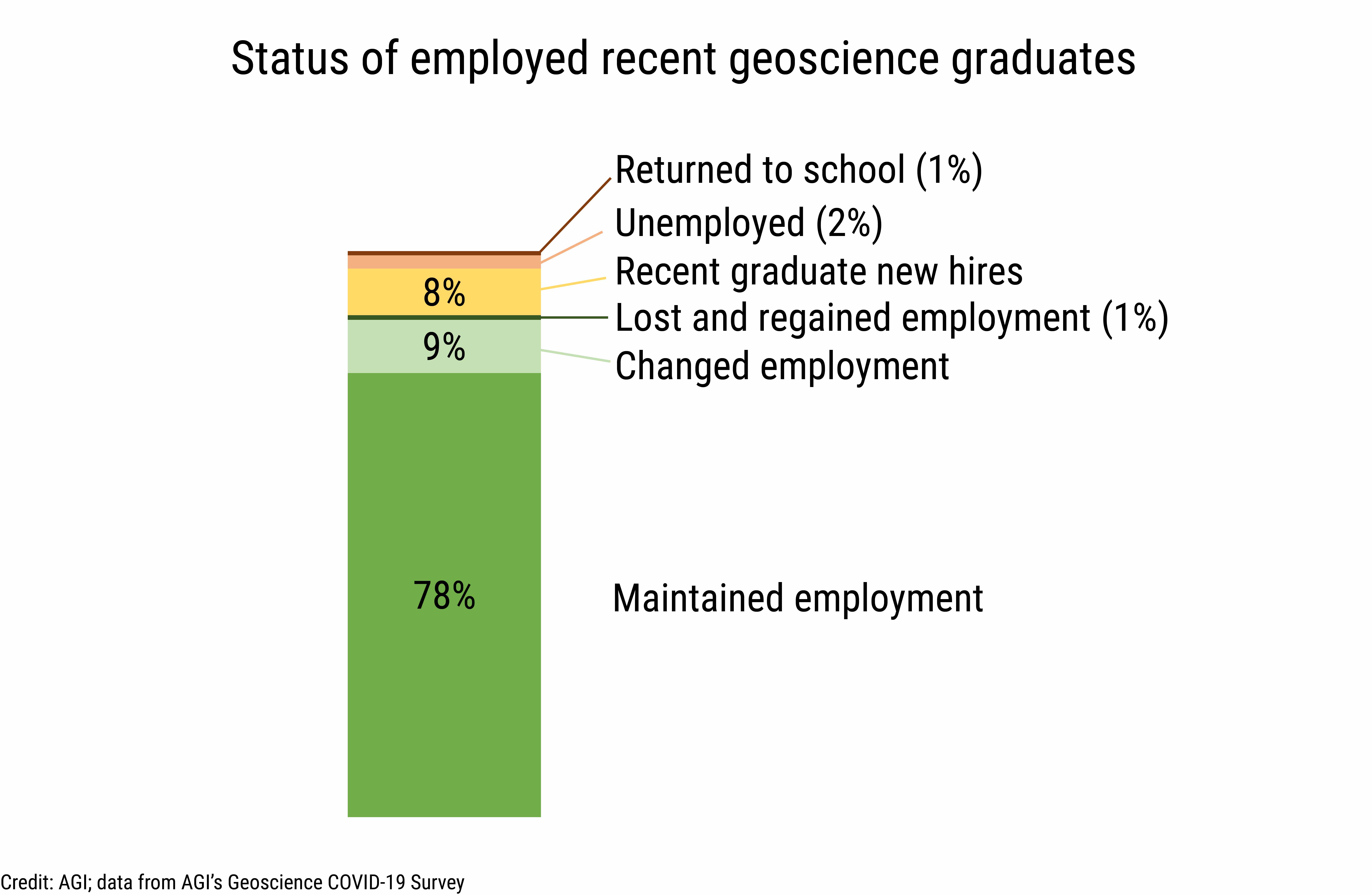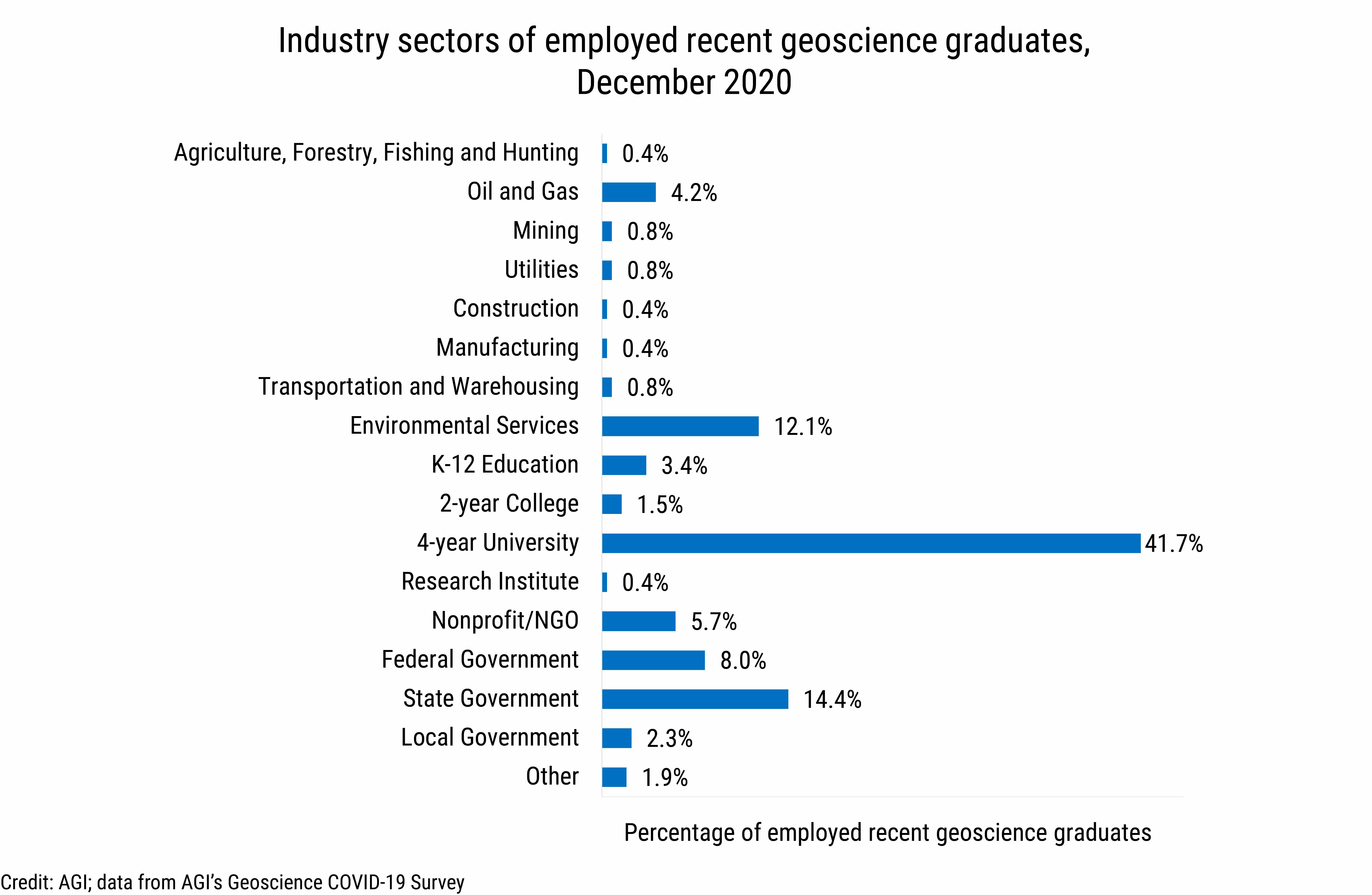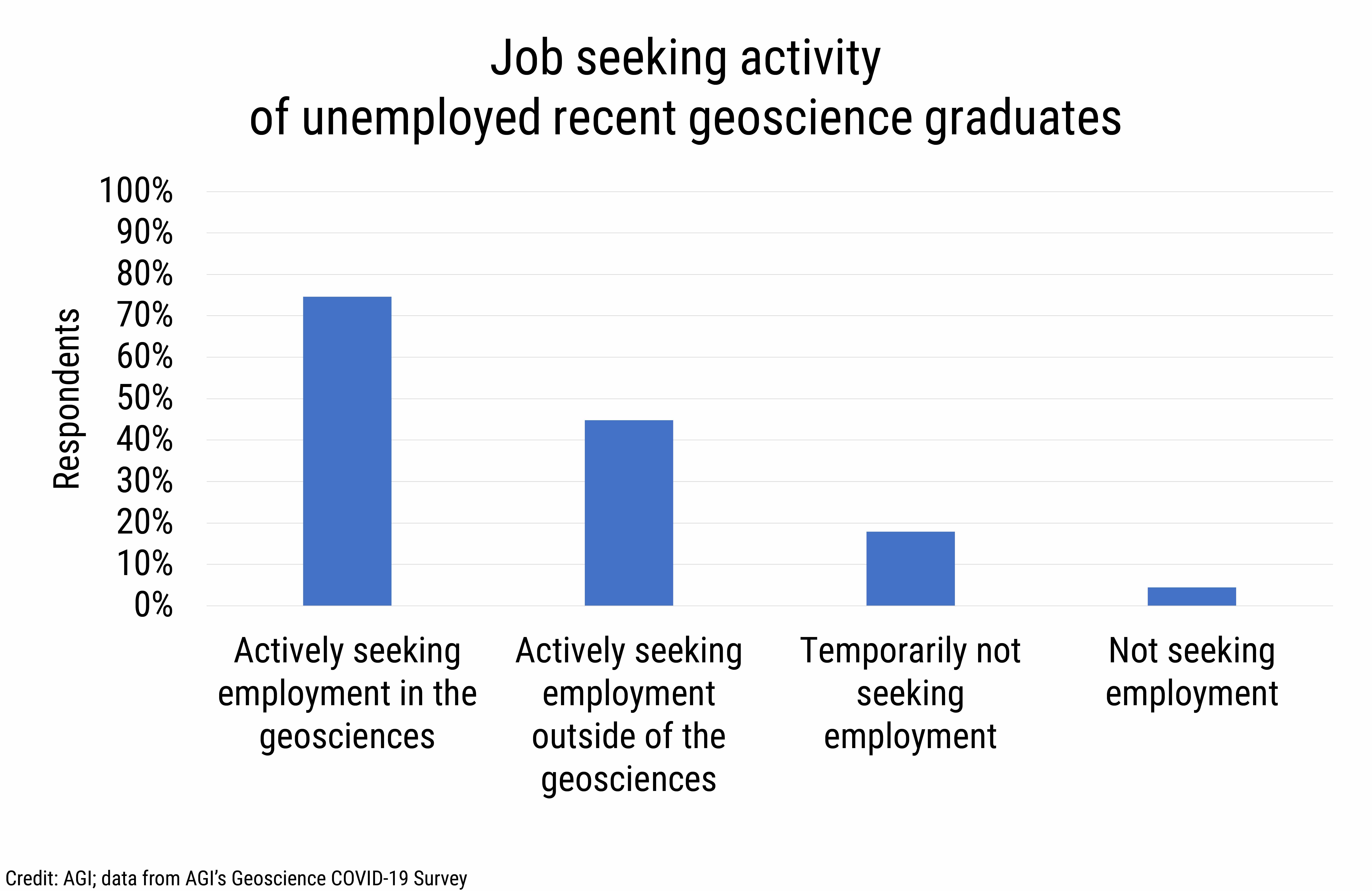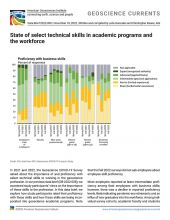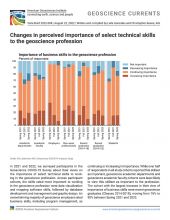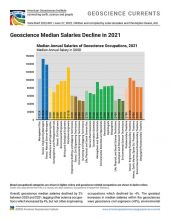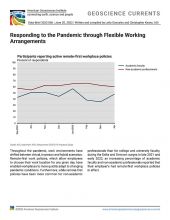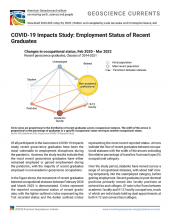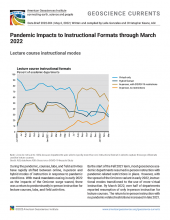As of December 2020, 91% of geoscience graduates who earned their degree between 2014-2018 were employed, while 75% of graduates from 2019 and 80% of graduates from 2020 reported the same. For geoscience graduates who earned their degree in 2020, 31% of bachelor’s, 50% of master’s, and 91% of doctorates had secured employment by December 2020.
In 2020, geoscience graduates who earned their degrees between 2014 and 2018 had the most stable employment situation of all recent geoscience graduate cohorts, with at least 90% of graduates employed throughout the year. Employment of recent graduates who earned their degrees in 2019 fluctuated between 69% and 87% in 2020, with peaks in unemployment in June and September. The majority of those who earned their geoscience degrees in 2020 secured employment by November.
The majority of recent geoscience doctorates were employed as academic faculty, post-doctoral fellows or non-academic geoscientists, and the majority of master’s and bachelor’s graduates were employed as non-academic geoscientists. Only 2% of employed recent geoscience graduates lost their job since February 2020.
In 2020, geoscience doctorates had the most stable employment situation of all recent geoscience graduate cohorts, with at over 90% of graduates employed during throughout the year. Employment of recent master’s geoscience graduates fluctuated between 79% and 90% in 2020, and employment of recent bachelor’s geoscience graduates varied between 50% and 76% over the same period.
Employed recent graduates
A look at the employment status of all employed recent graduates shows a stable workforce with 78% of employed recent graduates maintaining their employment throughout 2020. Some internal movement occurred in 2020 with 9% of employed recent graduates changing jobs and 1% losing and regaining employment. There was also an influx of new graduates into the workforce, and a small percentage of employed geoscientists who either lost their job or returned to school.
Recent geoscience graduates secured employment across a wide variety of sectors, with the highest percentages of graduates working in higher education (43%), government (25%), and environmental services (12%). Just over 5% of graduates secured employment in the non-profit sector and 4% of graduates secured employment within the energy sector.
By the end of 2020, 30% of recent geoscience graduates were employed in geoscience-related academic occupations, such as post-doctoral fellows, academic faculty, or K-12 faculty, 43% were employed in non-academic geoscience occupations, 10% were employed in other non-academic occupations, 1% were enrolled at universities or colleges, and 17% were unemployed. “Other non-academic occupations” included research analyst positions, computer software and support, policy analyst positions, administrative support, non-geoscience science and engineering positions, agriculture, finance, and construction occupations. We will be following up in future surveys to ascertain if those reporting “other non-academic occupations” are using their geoscience knowledge and skills in their current job.
Unemployed recent graduates
As of December 2020, 10% of geoscience graduates who earned their degree in 2020 reported being unemployed, and 19% of graduates who earned their degree in 2019 and 9% of graduates who earned their degree between 2014 and 2018 reported the same (see Figure 1). By degree level, a higher percentage of master’s graduates (17%) reported being unemployed than those with bachelor’s degrees (13%) or doctorates (6%). The trend in bachelor’s and master’s graduate unemployment can be traced to employment changes in October and November, when a large percentage of bachelor’s graduates secured employment.
Unemployed recent graduates are predominantly seeking employment in the geosciences (75%), and 45% are also seeking employment outside of the geosciences. The most common reasons for seeking employment outside of the geosciences included a lack of job opportunities within the geosciences, not having adequate training or skills for available geoscience jobs, and not having the educational pre-requisites for available geoscience jobs. Other reasons mentioned included better opportunities in another field, an inability to change location to take a geoscience job, and a loss of interest in working within the geosciences.
We will continue to provide current snapshots on the impacts of COVID-19 on the geoscience enterprise throughout the year. For more information, and to participate in the study, please visit: www.americangeosciences.org/workforce/covid19
Funding for this project is provided by the National Science Foundation (Award #2029570). The results and interpretation of the survey are the views of the American Geosciences Institute and not those of the National Science Foundation.


